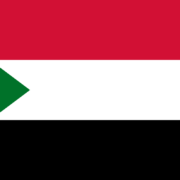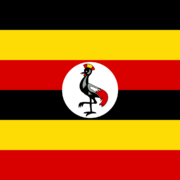East Africa
South Sudan
South Sudan, located in north-eastern Africa is the world’s newest country. Prior to 2011, South Sudan was part of Sudan, its neighbour to the north.
East Africa
South Sudan, located in north-eastern Africa is the world’s newest country. Prior to 2011, South Sudan was part of Sudan, its neighbour to the north.
Population: 12 million
Main Religion:Christian (61.2%)
Christians: 7.3 million
South Sudan, located in north-eastern Africa is the world’s newest country. Prior to 2011, South Sudan was part of Sudan, its neighbour to the north. It’s rich biodiversity includes lush savannahs, swamplands, and rainforests that are home to many species of wildlife. The country’s economy is described as a low-income oil based Sahelian economy. Decades of war have created extreme poverty and food insecurity.
Freedom House labelled the country as ‘Not Free’ with a score of just 1 out of 100, reflecting the dire state of affairs in the nation (Global Freedom Index 2024 South Sudan).
Under the 2011 Transitional Constitution, South Sudan is a republic with executive power vested in the president and vice president, who was appointed by the president (Britannica, accessed 19 September 2023). Hence, in July 2011, Salva Kiir Mayardit became president of the new independent state of South Sudan. However, seven years of civil war erupted when President Kiir sacked his cabinet and accused Vice President Riek Machar of attempting a failed coup. In September 2018, a power-sharing agreement was signed by President Kiir and opposition groups in a bid to end the brutal conflict. As a first step, the accord called for all armed groups to withdraw from all cities and civilian areas such as schools and refugee camps in the run-up to the country entering into a three-year-long political transition.
In January 2020, the UN Human Rights Council (UNHRC, 21 January 2020) expressed its ‘grave concern’ about the sustained lack of political will to end the fighting in the country.
The transitional constitution guarantees freedom of the press, but this right is not respected in practice. The government censors, harasses, and arrests journalists, especially those who criticize it or report on corruption or sanctions. According to the Committee to Protect Journalists (CPJ), at least six journalists have been killed in the course of their work since 2015.
In January 2023, NSS agents detained at least seven journalists working for the state-run South Sudan Broadcasting Corporation (SSBC) for allegedly leaking an embarrassing video of President Kiir. All of the journalists were released by March.
The interim constitution guarantees religious freedom, but houses of worship used as places of refuge for civilians have been attacked by gunmen seeking members of rival ethnic groups. In 2021, police arrested Prophet Abraham Chol Maketh of the Kush International Church for saying that Kiir and Machar would be deposed. In December 2022, Chol received a 31-month prison term; he was released in March 2023 after being detained for nearly two years (Freedom House).
Open Doors reports that in South Sudan, persecution stems from both violence and pressure, with these two elements being deeply interlinked. This situation is worsened by ethnic tensions, rivalries within religious denominations, and strained relationships between churches and factions like state authorities, rebel groups and tribal leaders.
The ongoing conflict fosters organized crime and violence, often targeting Christians, leading to church burnings and attacks on church leaders. Fear is rampant among Christian communities, exacerbated by acts of retaliation for speaking against corruption. Amidst this volatility, churches and church-run institutions strive to maintain stability, support peace initiatives, and provide aid, highlighting their crucial role in a country beset by turmoil. Churches are regularly destroyed: Churches in South Sudan are increasingly coming under attack. For instance, in October 2022, a Seventh-day Adventist church was deliberately burned down. As reported by the US State Department (IRFR 2022 South Sudan): “In October [2022], a member of the TNLA [Transitional National Legislative Assembly] ordered local youth to burn a Seventh-day Adventist (SDA) church in Gogrial East County, Warrap State. The TNLA member stated SDA doctrine was destroying traditional and cultural norms within the community. Following the incident, the parliamentarian made public statements in the press justifying his actions and calling the SDA church a ‘house of prostitution’, claiming the church was abducting women and girls from the community.”
Churches are regularly occupied by military groups: Military and paramilitary forces often make use of churches for their operations, thereby disrupting religious activities.
At least ten Christians were killed for their faith in the 2024 reporting period.

 Uganda
Uganda